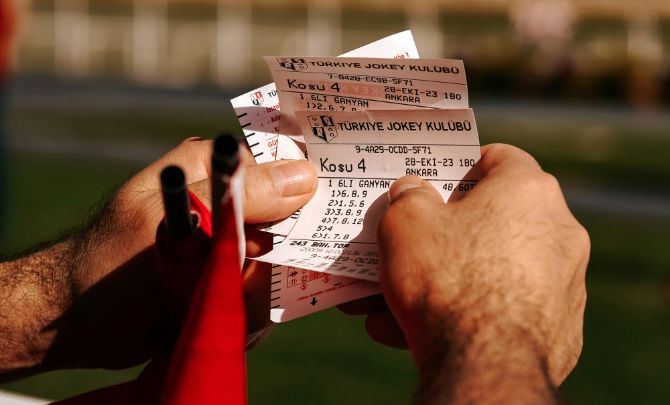What was once viewed as a hobby is really now emerging as an exercise in reasoning, probability and timing. Sports wagering, beyond the money, offers insight into genuine strategic thinking in the world.
In sports betting, luck comes into the equation—but it’s really only the tip of the iceberg. Experienced bettors understand that impulse does not beget victory. Instead, successful sports betting requires tempered decisions, calculated gambles and responsiveness. These traits, while polished within the environment of odds and stakes, prove transferable to consequential choices in daily life.
Strategic thinking does not mean being correct every time; instead, it means establishing a process that, over time, heightens your prospects of being accurate. Betting, when done responsibly, can serve as a reflection of the kind of thinking required in matters of high-stakes business, personal finance management and even relationships.
Lessons in Patience and Timing
One of the basic requirements in sports gambling is learning when not to gamble. The discipline of resisting temptation when the situation doesn’t feel quite right reflects the self-control needed in long-range planning. Not every temptation, no matter how appealing, is worth acting on. It’s a habit of thinking that anyone dealing with difficult life decisions can learn to benefit from.
Just as the trader waits until the market reaches some level before selling or buying, the strategic bettor waits until his wager can be placed when it has maximum value. Entering too early or holding back can lead to unfavorable outcomes, both in betting and in other areas of life.
Reading Between the Lines
Successful gamblers do not rely on gut decisions; instead, they read statistics, analyze trends and weigh factors against one another. It requires this thinking to get the brain in critical mode—breaking down past performance, projecting probable outcomes and factoring in uncertainties.
Whether analyzing a team’s defensive tactics or the weather’s influence on performance, the details are crucial. Platforms such as Betway facilitate this process by providing users with access to form guides, head-to-head statistics and live data. The focus on data is universal, not only in betting but also among strategic thinkers across various industries.
As in business, where reports, research or KPIs inform decisions, so are bettors guided by data to minimize the influence of chance and maximize the significance of rational decision-making.
Taking Risk—But With Constraints
There can be no strategic thinking without risk, but the key is in managing that risk. Sports betting offers a valuable lesson in setting boundaries. The smartest bettors do not chase losses, overbet their bankroll or think that a single win guarantees another win.
Betting risk management usually boils down to bankroll discipline—to only risk a fraction of the money being bet per bet. The approach is based on long-term viability, not instant payback. It’s the same math used when one invests: keep your money safe, play the long game and let compounding choices build your edge.
Having a clear plan and sticking to it, even when faced with adversity, is a sign of strategic maturity. And this applies much more widely than the betting slip.
Learning from Losses
Not every decision, regardless of how well considered, results in something good. Sports betting conditions its participants to embrace disappointment and continue, which is as helpful as it sounds. The skills involved in reviewing what went wrong, assuming responsibility and refining the process for the next time are valuable in any mindset of improvement.
When the stake doesn’t pay out, the strategic thinker never places blame on bad fortune or forces beyond control; instead, they reflect on their reasoning. Did they overlook a critical stat? Did they incorrectly read the trend? The habit of being brutally honest about themselves—something so prevalent among savvy betway users—is also possessed by good bosses, businesspeople and professionals of every kind.
Staying Emotionally Detached
One of the most often overlooked skills learned through sports betting is emotional detachment. When money is at stake, emotions are running at full throttle. However, professional bettors understand that acting on emotions often leads to impulsive decisions.
Instead, they learn to strip away personal bias and be objective, even when results are against them. This emotional self-control is necessary in most high-pressure situations. Whether you’re dealing with a professional reversal, negotiating a problematic issue or making a life-altering decision, maintaining your composure and seeing yourself as separate helps improve your judgment.
Sites such as Betway have developed mechanisms to manage this, including bet history and live updates, which promote cautious behavior over rash decisions. The environment conditions users to behave with their heads, not their hearts.
Final Line of Thinking
Though betting on sports can be worlds away from the boardroom or the daily business of decision-making, it is a condensed, real-time simulation of how to think strategically, manage risks, analyze and be disciplined. Those who do so deliberately—on Betway or other sites—are not simply betting; they are practicing a mode of thinking that serves them long beyond game time. Knowing the outcome, being able to reason well and changing because of each victory or defeat—these are the hallmarks of a strategic thinker. And whether on the race track or in life, it’s one skill set that always benefits.
